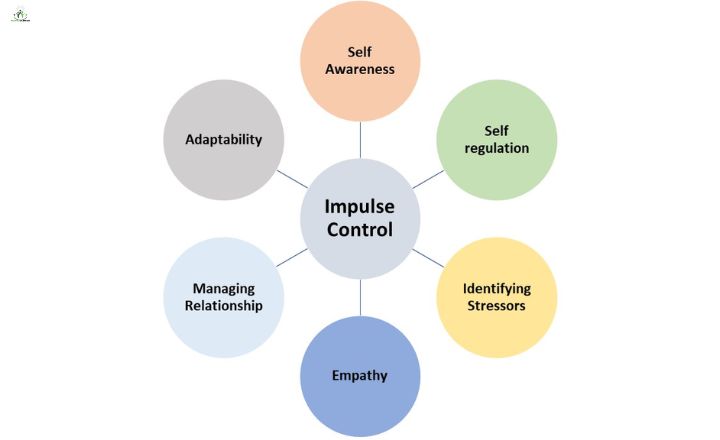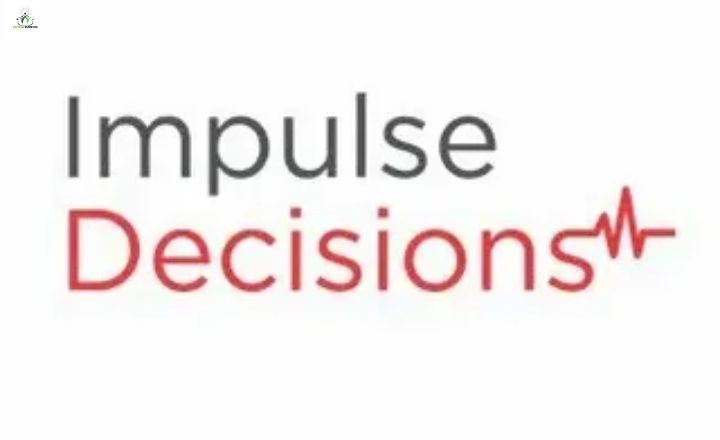The urge to act on impulse can be a powerful force, leading us down paths we never intended to take. Whether saying something hurtful in the heat of the moment, or making a rash career move, impulsive decisions can have lasting consequences.
In this article, we will explore seven effective strategies that can help you stop impulse decisions in their tracks and make thoughtful choices that align with your goals and values. So buckle up as we dive into the world of self-awareness and self-control to master the art of decision-Making!
how to control impulsive behavior
One effective strategy to control impulsive behavior is practicing mindfulness. By increasing awareness of our thoughts, emotions, and impulses in the present moment, we can better understand and regulate our reactions. Mindfulness techniques such as deep breathing exercises or meditation can help strengthen self-control and reduce impulsivity.
developing a habit of pausing before acting on impulse. Taking a moment to reflect on the consequences of our actions can prevent rash decision-making. By creating a space between our impulses and actions, we give ourselves the opportunity to make more considered choices, ultimately leading to better outcomes.
seeking professional help or guidance from a therapist can provide valuable support in managing impulsive behavior. Therapists can offer personalized strategies and tools to help individuals identify triggers and learn healthier ways of coping with emotions that may lead to impulsivity. Accepting assistance from experts shows strength and commitment to personal growth and development.

7 steps to stop impulse decision
There are 7 simple steps that will help you to stop impulse decision
Become physically aware
it is important to become physically aware of our emotions and reactions. By taking the time to tune into our physical sensations, we can better understand when our impulses are triggered and how they manifest in our bodies.
This awareness allows us to pause and reflect before acting impulsively, giving us the opportunity to make more intentional choices. Practicing mindfulness techniques, such as deep breathing or body scans, can help us stay present in the moment and prevent impulsive behavior.
By becoming physically aware, we empower ourselves to break free from the cycle of reacting without thinking and make decisions that align with our goals and values.

Become emotionally aware
By recognizing and understanding our emotions, we can better control our reactions and make more rational choices.
When we are able to identify the underlying emotions driving our impulses, we can take a step back, evaluate the situation more objectively, and consider the potential consequences of our actions.
Embracing emotional awareness allows us to pause before acting impulsively, giving us the opportunity to make decisions that align with our long-term goals and values.

Become impulse aware
By recognizing when we are acting impulsively, we can take a step back and evaluate the situation more rationally. This awareness allows us to consider the potential consequences of our actions before making a decision, leading to better outcomes in the long run.
Taking the time to pause and reflect on our impulses can help us make more informed and deliberate choices, rather than acting on impulse in the heat of the moment.
Become consequence aware
It is a crucial step in preventing impulse decisions. By taking the time to consider the potential outcomes of our actions, we can better assess whether acting on an impulse is truly worth it.
Understanding the consequences allows us to make more informed choices and avoid making decisions that we may later regret.
Being consequence aware empowers us to pause, reflect, and make decisions that align with our values and long-term goals. In doing so, we can cultivate a greater sense of self-control and discipline in our decision-making process.
Become solution aware
Becoming solution aware is crucial in order to prevent making impulsive decisions. By taking the time to consider and explore potential solutions to a problem, we can avoid acting hastily and making choices that we may regret later on.
Being solution aware allows us to think more critically and strategically, leading to better decision-making outcomes. It empowers us to evaluate different options, weigh their pros and cons, and select the most effective solution based on careful consideration rather than impulse.
This approach not only helps us avoid making rash decisions but also improves our ability to address challenges effectively and achieve desired results.
Think about what you are gaining
It is important to take a moment to think about what we are gaining from the choice we are about to make. This pause allows us to evaluate the potential benefits and consequences of our actions, rather than acting on impulse.
By considering what we stand to gain, we can make more informed decisions that align with our goals and values. Taking this extra step can lead to more positive outcomes and help us avoid unnecessary risks or regrets in the long run
Call your friend.
It’s always a good idea to take a moment and call a friend for advice. This can help prevent making impulsive decisions that we may later regret.
Seeking the perspective of someone we trust can provide valuable insight and help us see things from a different angle. So next time you find yourself in a dilemma, remember to reach out to a friend before making any rash choices.
Conclusion
Making impulse decisions can have negative consequences that may impact our lives in various ways. By recognizing our triggers and taking steps to pause and think before acting, we can avoid making hasty choices that we may regret later on.
It is important to consider the long-term effects of our decisions and weigh the pros and cons before committing to any course of action.
Learning to control our impulses and practice mindfulness can lead to better decision-making and overall well-being. Let’s strive to be more intentional in our choices and strive for a more thoughtful approach in all aspects of our lives.
What is an impulse decision?
An impulse decision is a choice made suddenly, without careful consideration of consequences.
Why should I stop making impulse decisions?
Making impulse decisions can lead to regrets and negative outcomes in the long run.
How can I identify if I am making an impulse decision?
Pay attention to feelings of urgency or pressure when making a decision, as these are often signs of impulsivity.
What are some common situations where people make impulse decisions?
Impulse decisions are often made in shopping, relationships, and financial matters.

